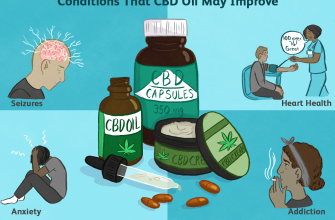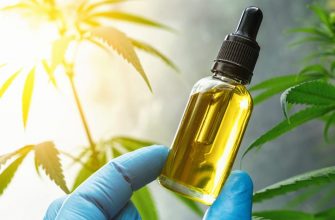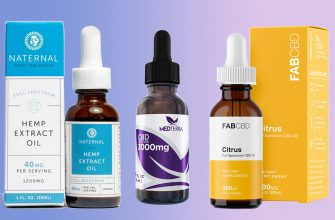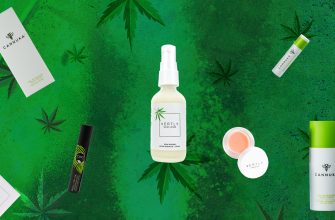- FACT – CBD is a type of cannabinoid.
- MYTH – CBD is good, THC is bad.
- FACT – CBD interacts with the endocannabinoid system of the body.
- MYTH – There is no scientific evidence that CBD works.
- FACT (i.e.) – CBD is currently classified as a drug.
- MYTH – If CBD is so good, why not just make a synthetic version of it?
- FACT – UK CBD comes from hemp
Recently there have been vague reports and reports in the British media about the ingredient in cannabis called CBD and why it was reclassified as a drug.
You may already be lost when talking about all the non- and psychoactive components, cannabinoids, CBD, THC, etc. There is nothing to worry about, now you will know everything you need to know when we uncover all the myths and facts about CBD.
FACT – CBD is a type of cannabinoid.
Let’s take a look at the scientific side first. CBD, known as Cannabidiol, is one of the 100 components in the hemp flower called cannabinoids. The most well-known component is THC. It is he who is the cause of the intoxicating effect. The second most common is CBD. What makes CBD so interesting (and legal) is that it doesn’t have the same intoxicating effect, but is anti-inflammatory, reduces epilepsy attacks, and helps with feelings of anxiety and chronic pain.
MYTH – CBD is good, THC is bad.
Just because CBD does not have an intoxicating effect, it has been labeled as a “good” cannabinoid, while THC is labeled as a “bad” cannabinoid. But in countries where medical cannabis is legal, TCG is often prescribed to cancer patients undergoing chemotherapy to relieve nausea and improve appetite. Preclinical studies also indicate that THC kills certain types of cancer cells. But an interesting fact is that when both cannabinoids are combined, CBD actually reduces the psychoactive effects of THC.
FACT – CBD interacts with the endocannabinoid system of the body.
You may not know yet, but everyone from ascidians to humans has an endocannabinoid system—a vast network of receptors and endocannabinoids that regulates vital functions such as sleep, appetite, mood, memory, inflammation, and reproduction. It happens that the endocannabinoid system is depleted, which is the cause, according to scientists, of certain diseases. Research shows that taking CBD helps boost our own endocannabinoid levels, helping the body get back in balance.
MYTH – There is no scientific evidence that CBD works.
Although so far, most of the research has been preclinical, there have been studies on people who have been treated with CBD. They have been shown to reduce the symptoms of schizophrenia and are effective in alleviating feelings of social anxiety. But the most extensive research has been in treatments for childhood epilepsy, which has seen a number of clinical trials, including by the British company GW Pharmaceuticals, who developed a CBD-based drug called Epidiolex, which was successfully tested on children with a rare form of epilepsy at the Great Hospital. Ormond Street in London.
FACT (i.e.) – CBD is currently classified as a drug.
In the UK, it is possible to buy CBD as a dietary supplement. But last October, the Healthcare Regulatory Agency decided to recognize the therapeutic benefits of CBD and reclassify it as a medicine. In fact, this means that CBD will have to go through rigorous, double-blind, placebo trials like other drugs. At the same time, CBD can still be purchased as a dietary supplement while it is under consideration. But this may change in the future.
MYTH – If CBD is so good, why not just make a synthetic version of it?
Good question. After everything that’s been done with Aspirin and Morphine, right? The fact is that in the case of hemp, scientists have come to the conclusion that there is a kind of synergy between all the active substances, so that the whole plant is better than using its components separately. This is called the entourage effect. That is, the properties of an individual hemp plant largely depend on the ratio of THC, CBD, other cannabinoids, terpenes and flavanoids in its tissues.
But the use of the whole plant is of little interest to pharmaceutical companies, who prefer to use a single substance or a synthetic version that can be patented.
FACT – UK CBD comes from hemp
You probably don’t have the faintest idea of the difference between marijuana and cannabis. Basically, it’s the same plant, only Hemp does not exceed 0.2 percent THC and contains more CBD.
However, the wonders of Cannabis do not end there. Once planted, it can absorb toxins from the soil and even be used to clean up contaminated land from industrial debris. So make sure you choose an organic CBD free of heavy metals and pesticides.
Now you’re not exactly a novice. But if you do decide to use CBD for the first time, be sure to consult your doctor before starting treatment.
Source: http://www.huffingtonpost.co.uk/mary-biles1/cbd-the-myths-and-facts_b_14103666.html





